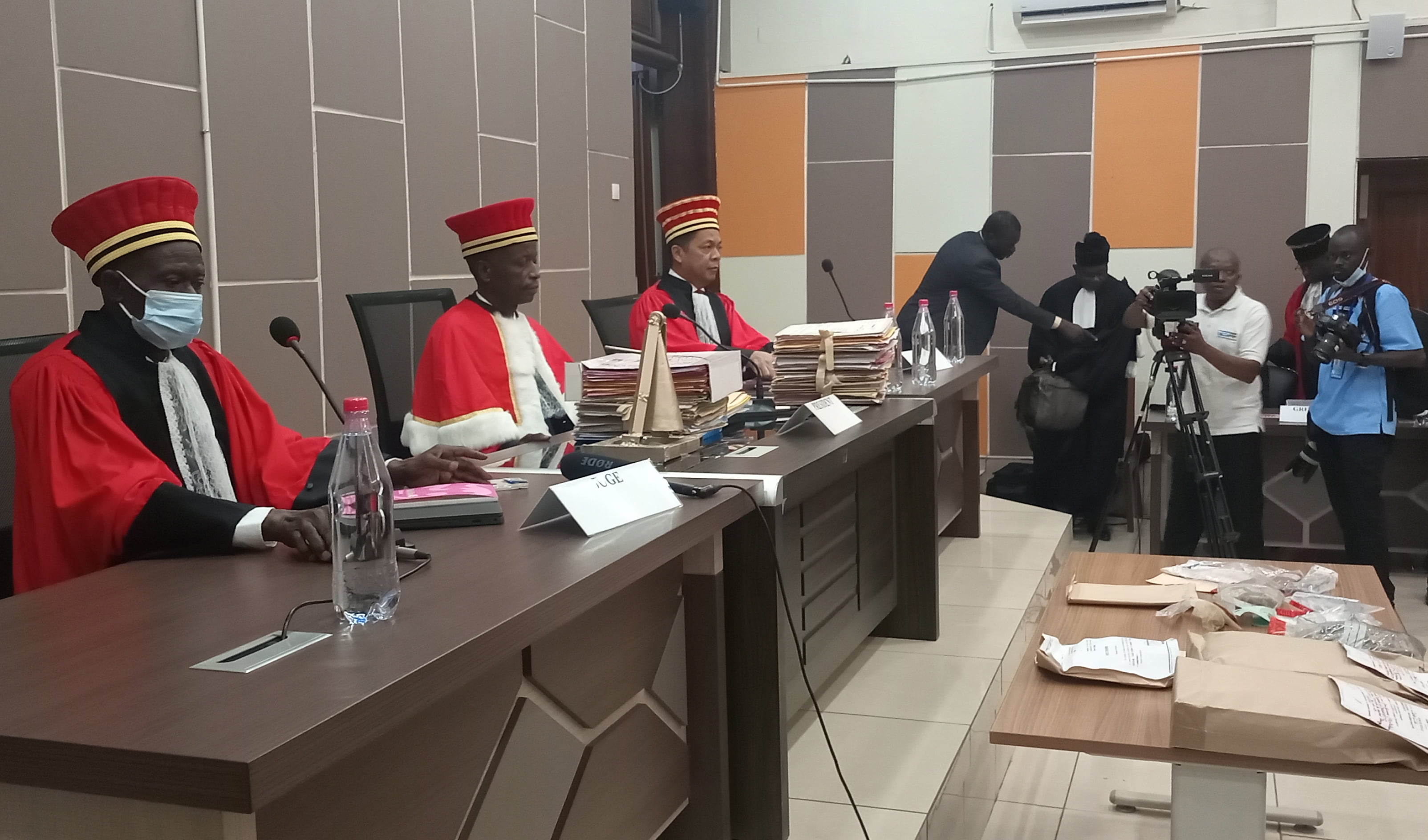Central African Republic

Countries & Territories
In the Central African Republic (CAR), the political and security situation remained volatile with new challenges emerging in 2022 such as the fuel shortage crisis and political unrest linked to a planned referendum to extend the mandate of the president. This multidimensional crisis, along with the economic deterioration as the state allocations were repurposed to address security issues, hampered the recent progress made to strengthen the rule law, end impunity, restore state authority and access to justice.
Integrated response
Partnerships
The Joint Rule of Law Programme in CAR is one of the flagship UN joint programme modalities operationalized through the UN Global Focal Point for the Rule of Law (GFP). The programme is implemented by UNDP CAR and the UN multidimensional Integrated Stabilization Mission in CAR (MINUSCA) in cooperation with the Team of Experts on Rule of Law and Sexual Violence in Conflict (ToE) and UN Women. This ‘One-UN’ approach facilitates resource mobilization, allows the UN to leverage the comparative advantages of different agencies and work towards common objectives.
In 2022, the project on integrated support to people-centred transitional justice processes in CAR received funding through UNDP’s Global Programme for Strengthening the Rule of Law, Human Rights, Justice and Security for Sustainable Peace and Development.
The project has three key components:
- supporting people-centred transitional justice mechanisms;
- ensuring uninterrupted and accessible legal aid services; and
- improving community security.
Supporting people-centred transitional justice mechanisms
The GFP partners continued supporting the transitional justice mechanisms in CAR – the Special Criminal Court (SCC) and the Truth, Justice, Reconciliation and Reparation Commission (the Commission or CVJRR). Since its establishment in 2021, the Commission has been mandated to facilitate access to justice for victims of armed conflict, conflict-related sexual violence (CRSV), gender-based violence and other human rights violations. 2022 was a milestone year for fighting impunity in CAR: the SCC issued its first verdict on war crimes and crimes against humanity, and the CVJRR settled in a fully equipped space and completed its preparatory phase. In particular, the Commission designed an intervention strategy and hearing forms, and conducted seven outreach activities on their mandate.
Gender equality
To mainstream gender in the truth-seeking process and to ensure the human rights-based approach, the Commission produced a gender manual, in close collaboration with the International Center for Transitional Justice (ICTJ) and UN Women, and organized a workshop for 11 commissioners of the CVJRR and civil society representatives to brainstorm on gender-sensitive approaches in truth-seeking.
In all its activities, CVJRR is committed to ensure the participation of victims and affected communities enabling people have meaningful input in the design and implementation of the transitional justice mechanisms. CVJRR will assure this through creating spaces for participation, such as community consultations, public hearings and other forms of dialogue.
Innovation
To promote the national ownership and increase public engagement, UNDP and MINUSCA supported an open contest to design the Commission’s logo. Over 100 logo designs were received with the winning logo selected in April 2022.
The project also focuses on building institutional capacity of CVJRR commissioners and staff on human rights and transitional justice processes to ensure that the institution is well equipped to implement its mandate. Three training sessions were organized in 2022.

Ensuring uninterrupted and accessible legal aid services
To ensure that people in CAR have access to legal aid services, UNDP funded the operations of nine legal clinics across the country. UNDP and MINUSCA have led the selection process to identify local and/or international civil society organizations (CSOs) that will manage the clinics.
Gender equality
Between 2020 and January 2022, the legal clinics in CAR were supported through the UN Peacebuilding Fund (PBF) and provided access to justice services for almost 3,000 victims (160 men, 40 boys, almost 2,000 women and over 900 girls). Most of the service providers in the clinics were women representing local communities and CSOs.
Innovation
UN engagement with local partners strengthened their capacity to step in where the state services were out of reach, a methodology that can be replicated in other settings.
Gender equality and non-discriminative access to justice for women has been streamlined across all types of the GFP programming in CAR. The specialized police unit on sexual violence (UMIRR) was incepted in 2017. In 2022 alone, the unit in Bangui, the capital, received over 3,000 complaints: 2,377 complaints from women and 650 from men.
Improving community security
As part of the portfolio approach, the security component was integrated in the project for integrated support to people-centred transitional justice in CAR. GFP coordinated activities to renovate infrastructure in the prisons of Bouar, Bambari and Bimbo. Office equipment provided to these institutions allowed the working conditions of prison personnel to be improved. In addition, the airport and the Special Police Station in Bangui received modern control equipment to contribute to the improvement of security at the Bangui M'poko airport and strengthen control measures to counter organized crime, illicit trafficking and financial delinquency.

A session of the Special Criminal Court in the Central African Republic

results
- National capacities to fight impunity were strengthened as the CAR Special Criminal Court (SCC) issued its first verdict on war crimes and crimes against humanity in October 2022.
- The Truth, Justice, Reconciliation and Reparation Commission (CVJRR) has become fully operational with its intervention strategy developed for 2023. The operationalization of the CVJRR has paved the way for improved coordination between transitional justice mechanisms and the country’s overall justice system.
- The border control at the Bangui M'poko airport has been strengthened through the deployment of the Mobile Interpol Network Device.

